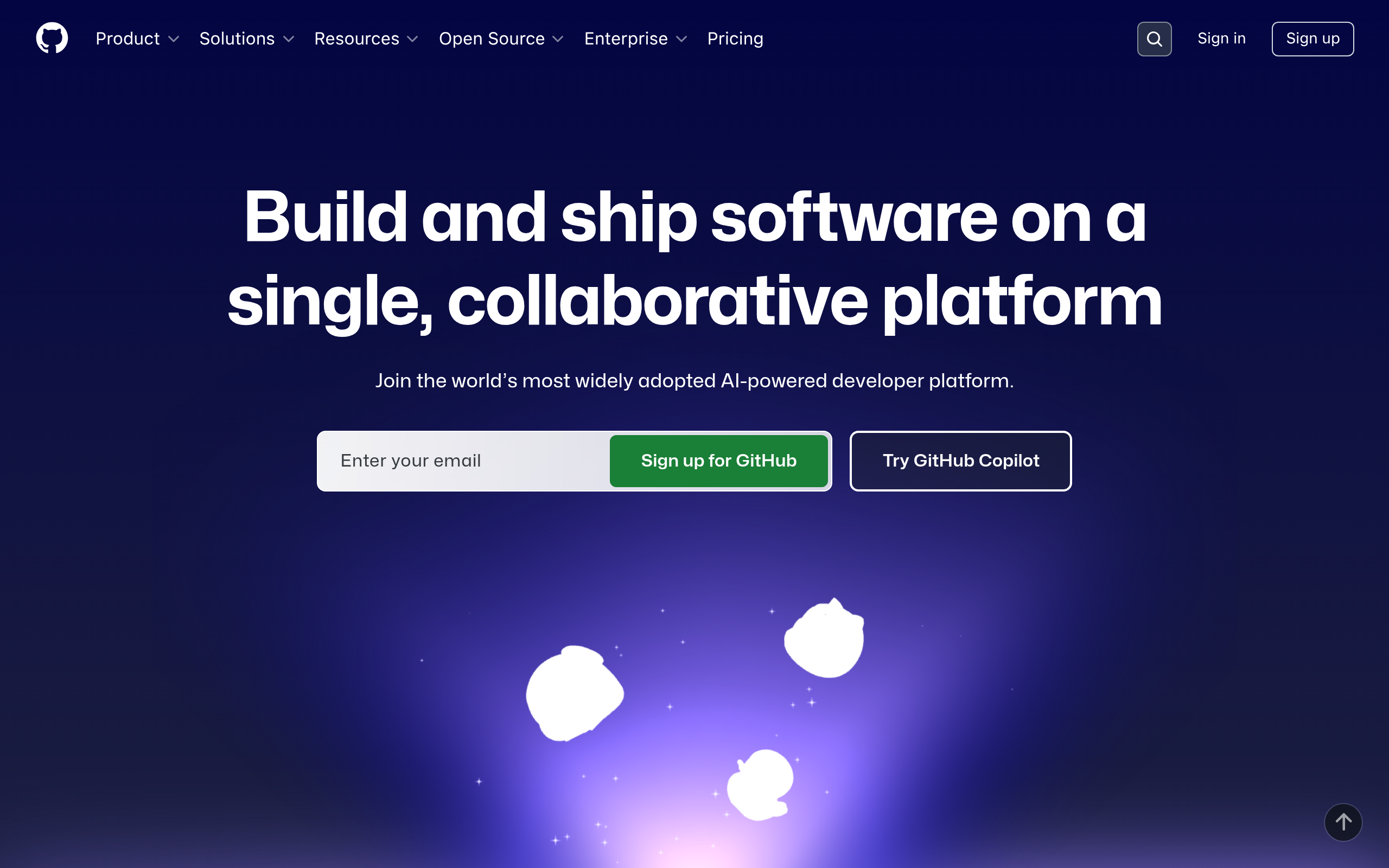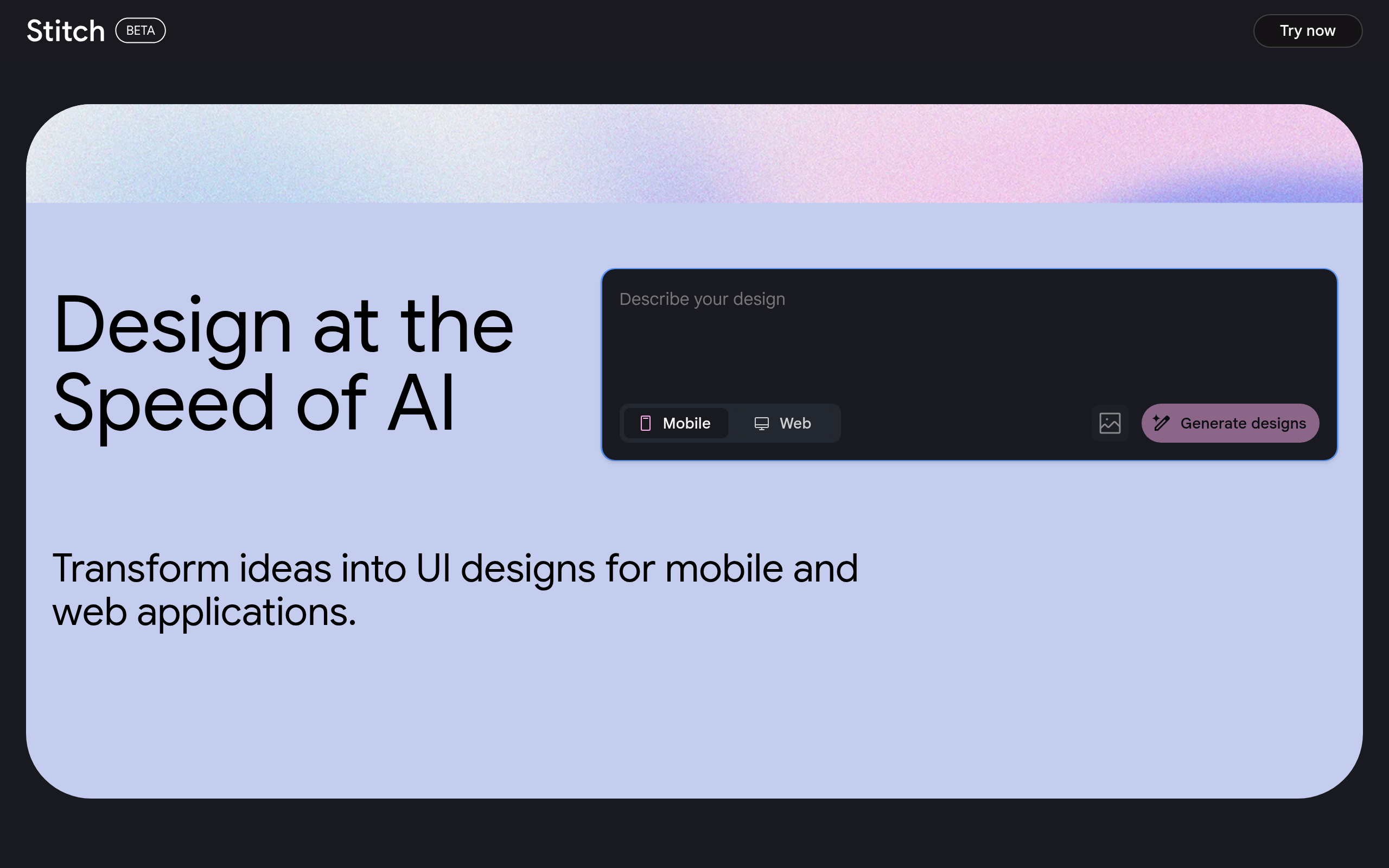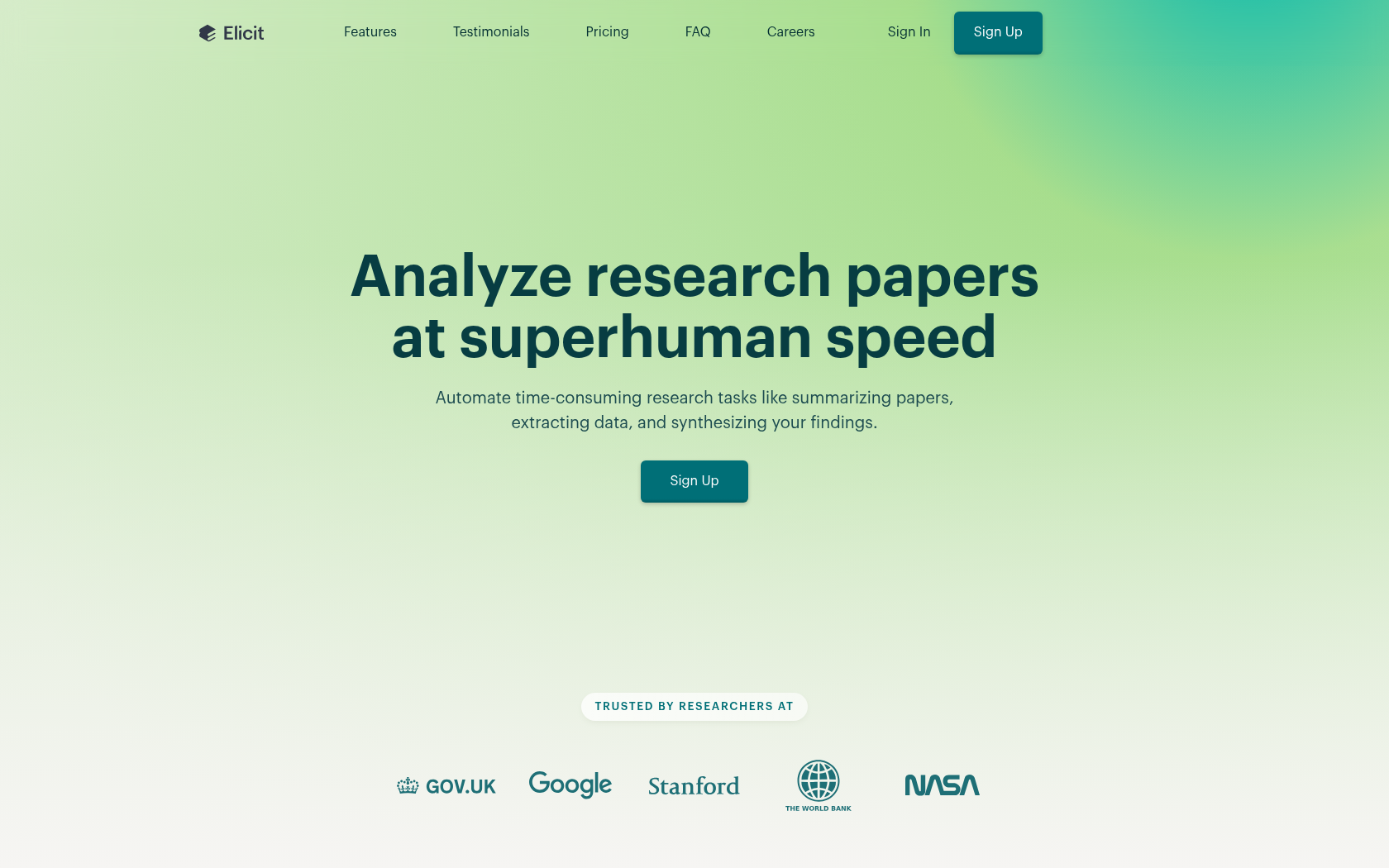GitHub
GitHub is a unified development platform for global developers to collaborate, version control, automate, and share open source.

- Launch Date
- April 2008
- Monthly Visitors
- 485.5M
- Country of Origin
- United States
- Platform
- Web · App
- Language
- English
Keywords
- Git
- version control
- open source
- collaborative development
- GitHub Actions
- repository management
- CI/CD
- issue tracking
- project board
- code review
- commit history
- pull request
- GitHub Copilot
- DevOps
- code hosting
Platform Description
Core Features
-
Code repository hosting
Create and manage Git-based repositories on the web
-
Pull Request-based collaboration
Compare and merge code you've worked on in branches
-
CI/CD with GitHub Actions
Organize workflows to automate testing, building, and deployment
-
Issue tracking and task management
Register bugs, feature requests, and more as issues and manage them with project boards
-
AI code generation assistant (GitHub Copilot)
Automatically generate code suggestions as you type in natural language
-
Version history and comparison features
Visually compare each commit and change
-
Set team/organization permissions
Precise control over per-user permissions
-
Package/Release Management
Organize and deploy each release version with tags
Use Cases
- Open source projects
- Internal collaboration
- Personal portfolio
- CI/CD deployment
- Code reviews
- API documentation
- Technical blogs
- Managing issues
- Data science projects
- Community operations
- Configure your DevOps environment
- Bug fixes
- AI Code Assist
- Automate code testing
- Standardize team development
How to Use
Create a repository
Install Git and connect local storage
After writing code, commit/push
Create and collaborate on pull requests, set up Actions
Plans
| Plan | Price | Key Features |
|---|---|---|
| Free | $0 | • Unlimited public/private repositories • Dependabot security and bug updates • 2,000 CI/CD minutes per month (free for public repositories) • 500 MB package storage • Issue and project boards • Community support • Additional paid features: GitHub Copilot, Codespaces available |
| Team | $4/mo | • Free plan features • Access to GitHub Codespaces • Set up protected branches • Assign multiple code reviewers • Draft pull requests • Assign code owners • Set required reviewers • Force merge control • Merge limits and branch secrecy • 3,000 CI/CD minutes per month • 2 GB package storage • Web-based customer support • Additional paid features: GitHub secrecy, code security features |
| Enterprise | $21/mo | • Team plan features • Data Residency • Enterprise admin users • SCIM user provisioning • Centralized enterprise account management • Activity/storage security rules • Audit log API • SOC1, SOC2, and Type 2 compliant • FedRAMP approved for government operations • SAML single sign-on support • Advanced auditing capabilities • GitHub Enterprise server integration • 50,000 CI/CD minutes per month • 50 GB package storage • Exclusive add-on: Premium technical support available |
FAQs
-
GitHub is an integrated development platform that allows developers around the world to manage code repositories, collaborate, deploy, and automate based on Git. It is widely used in open source as well as enterprise development environments.
-
Increase productivity and consistency by handling the entire development lifecycle within GitHub, including code versioning, team collaboration, CI/CD automation, code reviews, security audits, and AI autocomplete (Copilot).
-
Supports nearly all major languages, including JavaScript, Python, Java, Go, Rust, PHP, Ruby, .NET, and more, and runs on macOS, Windows, Linux, ARM, and GPU environments
-
GitHub Actions is a CI/CD tool that automatically triggers builds, tests, and deployments when you make code changes. You define them in a YAML file, where you can set different triggers and conditions.
-
Automate almost any development-related task, including code pushes, PR creation, issue creation, releases, test runs, Docker builds, AWS deployments, Slack notifications, and more.
-
Copilot is an AI assistant powered by OpenAI that provides code autocompletion, function suggestions, comment-based code generation, code explanations, and even interactive assistance.
-
It analyzes the context of your code to predictively generate the most appropriate code for you. It works as an IDE extension (Visual Studio, JetBrains, etc.), and Copilot chat is also available in the GitHub web UI.
-
Copilot is probability-based rather than copy-and-paste, and GitHub provides duplicate filters and license detection tools to help users identify and act on license issues.
-
Features include static analysis (CodeQL), secret scanning, dependency analysis, push protection, SAML login, SCIM user management, audit logs, supply chain security, and more.
-
A feature that blocks and warns developers when sensitive information (API keys, passwords, etc.) is automatically detected before a Git push.
-
Because projects rely on so many external libraries, a single vulnerability can expose the entire project. GitHub manages the entire chain with dependency analysis, CodeQL, SLSA support, and SBOM generation.
-
Basic personal use is free. It includes most features, including private storage, Actions, Pull Requests, and basic security features.
-
Key differences include: - Copilot availability - CI/CD time (2,000 minutes for Free, 3,000 minutes for Team, 50,000 minutes/month for Enterprise) - Package storage (500 MB for Free, 50 GB for Enterprise) - Team permission management and SAML authentication, and whether security features are included
-
Yes, you can upgrade and downgrade on a monthly basis, with pricing adjusted based on the number of days you use.
-
- Optimize CI cache to speed up Actions execution time - Reduce costs by reducing unnecessary matrices - Enable Push Protection before pushing sensitive information - Design user/privilege management to fit your organizational structure - Keep internal projects separate from open source contributors
⚠ If any information is incorrect or incomplete, please let us know by clicking the button below. We will review and apply corrections promptly.




